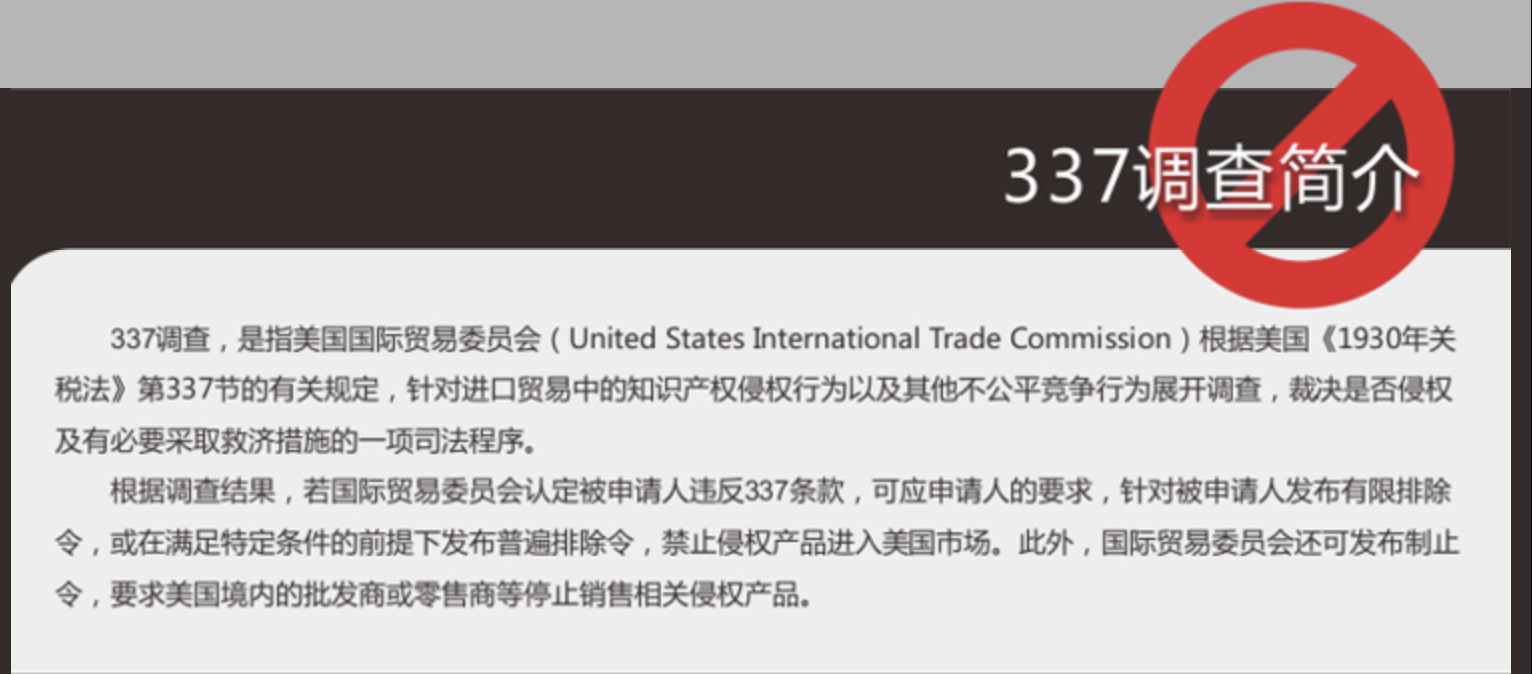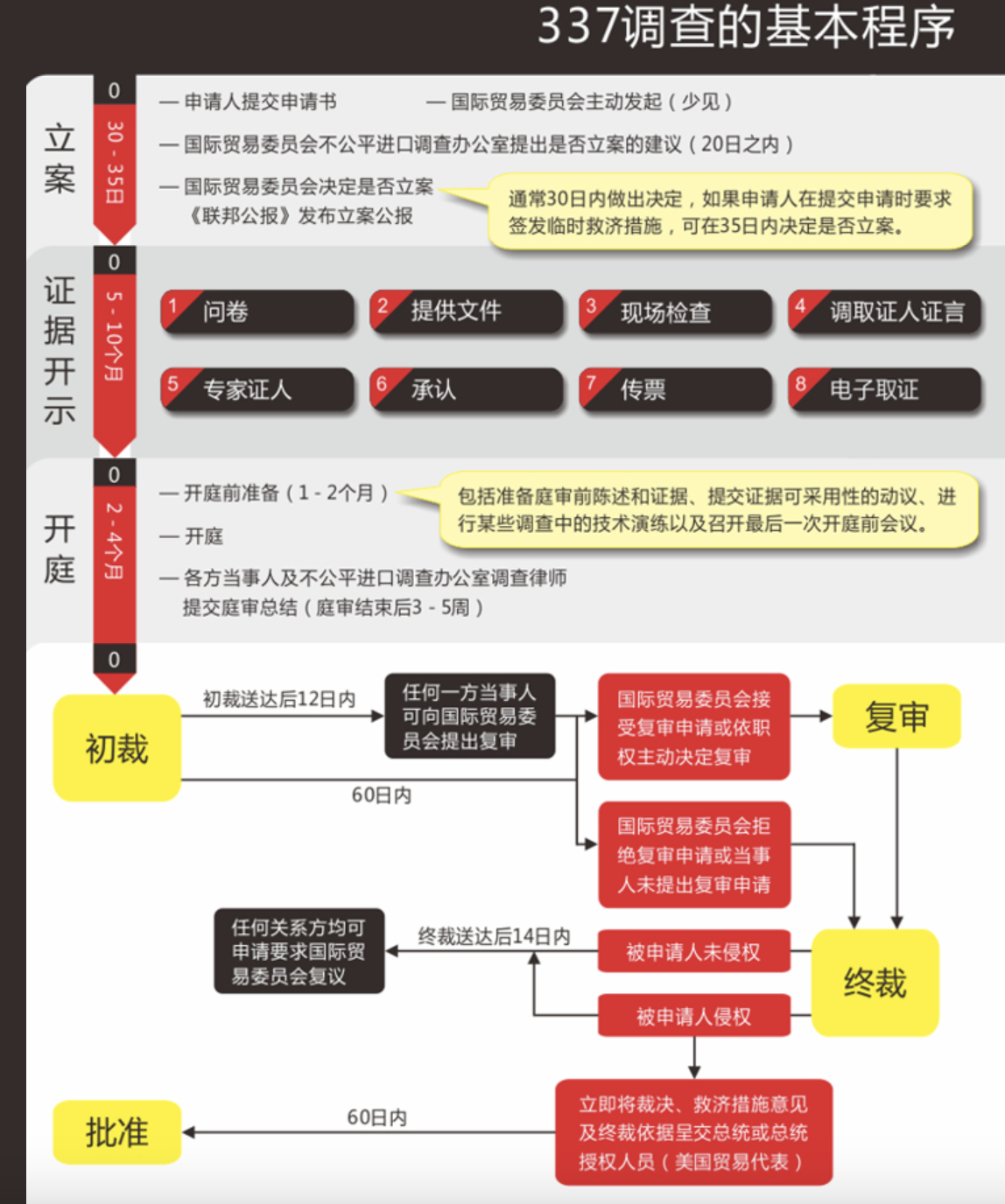
Reynolds Tobacco, known for filing lawsuits regarding the patent infringement of its non-combustible heating and e-cigarette technologies, has recently turned its attention towards 26 Sino-American e-cigarette companies. They have filed a "337 investigation" application with the United States International Trade Commission (ITC).

The latest 337 investigation is the largest case following a series of investigations involving JUUL since 2018, and Reynolds Tobacco's 337 investigation against IQOS in 2021.
This year, the global e-cigarette industry is facing a complex environment with controversies surrounding disposable products, varying legislations in different countries, the FDA nearing exhaustion, and the upcoming FCTC framework convention conference scheduled for November.
Previously, the patent dispute between BAT and PMI came to a temporary end. However, as things unfold, the public opinion on the compliance of ELFBAR testing exceeding standards from BAT in Europe has not yet subsided. Meanwhile, IQOS iluma is preparing to enter the US market. In such a complex and rapidly changing landscape, Reynolds Tobacco has shocked the industry by initiating a 337 investigation against 26 Chinese and American e-cigarette companies using unconventional means.
In response to this, particularly Chinese e-cigarette companies, what can be done? 2FIRSTS conducted an exclusive interview with practicing attorney Grace from the United States and Chinese e-cigarette legal expert Lawyer Tang Shunliang.
Reynolds: 3 Major Unfair Competition Practices
2FIRSTS: What makes Reynolds Tobacco's recent initiation of a 337 investigation different from previous instances?
Grace: One notable aspect of this case is that it is not a traditional intellectual property case. The majority of 337 investigations we usually encounter are based on intellectual property infringements, involving certain patent, trademark, and copyright infringement issues.
In fact, it is not only cases of intellectual property infringement that can be brought to the litigation platform of the International Trade Commission (ITC). The United States' 337 investigations are based on the 1930 Tariff Act, a trade remedy law enacted to protect domestic industries from the adverse effects of unfair imports. The prohibited unfair practices under this law not only include intellectual property infringement but also encompass other forms of unfair competition.

In this case, Reynolds Tobacco alleges that the defendants have engaged in three major categories of unfair competition.
First, there are false and misleading advertisements, such as falsely claiming that a product is "approved" by the US FDA when it is not, stating that a product is "Clear" when it actually has a flavor, and using misleading or false country of origin names.
Secondly, some of the defendants engage in actions that violate relevant laws and regulations regarding electronic nicotine delivery systems (ENDS) set by the United States federal government.
Thirdly, some of the defendants are found to have engaged in the improper use of customs codes.
2FIRSTS: What impact will this case have on the accused company and the industry as a whole?
Grace: We need to understand the relief measures for Section 337 investigations. Those familiar with the U.S. Section 337 investigation process know that the relief measures are not based on compensation, but rather on injunctions, including exclusion orders and cease and desist orders. An exclusion order prohibits the entry of products into the United States that engage in unfair competition. On the other hand, a cease and desist order prevents the continued sale of already imported products (inventory) within the United States, aiming to prevent the accused company from bypassing import restrictions by stockpiling large quantities of goods.
The exclusion order can be further classified into two types: general exclusion order and limited exclusion order. A general exclusion order prohibits the importation of all related products regardless of their origin. In other words, even if they are not defendants (respondents) in the case or unrelated to the respondents, the importation of these products will be banned. Once a general exclusion order is issued, its impact on the entire industry is significant. On the contrary, a limited exclusion order is specific to certain origins and prohibits their importation.
Reynolds has applied for a universal exclusion order in this case. In the lawsuit, Reynolds specifically mentioned that some Chinese manufacturers and importers can easily circumvent limited exclusion orders by simply renaming and/or reclassifying their products. Therefore, Reynolds believes that only a universal exclusion order can effectively protect the domestic industry in the United States.
It should be noted that the scope of the 337 investigation is very broad and not limited to the brands and models listed in the complaint. Disposable e-cigarette products and components imported to the United States that are believed to be involved in unfair competition may also fall within the scope of investigation.
It is suggested that enterprises actively respond and comprehensively consider the costs of litigation.
2FIRSTS: What was the procedure of this 337 investigation? How should Chinese e-cigarette companies respond to it?
Grace: The pace of investigations conducted by ITC (International Trade Commission) is very rapid. Typically, within 30 days of filing a complaint, ITC will decide whether to initiate an investigation, and in the majority of cases, an investigation is launched. Once the investigation begins, the process moves quickly to the disclosure of evidence, and litigation is generally concluded within 16 to 18 months. Compared to cases in federal district courts, ITC's progress is much faster, posing a significant challenge to companies' litigation capabilities.

The 30 days leading up to an investigation are often referred to as the "calm before the storm," and they are considered a golden period for preparing a response. However, in reality, many Chinese companies find themselves in a state of "hesitation" and "indecision" after being sued, consulting lawyers but unable to make a decision, thus wasting a prime opportunity to mount a defense.
If the intention is not to completely abandon the US market, we would advise companies to actively take on the challenge. There are various ways to do so, including seeking low-cost settlements. However, not engaging or ignoring the situation would put them in a vulnerable position, especially when the opposite party is seeking a general exclusion order. As for the cost of taking on the challenge, companies can consider it from several perspectives:
- How significant is the US market for the company, how much does it contribute to the company's revenue, and what is its future potential?
- In addition to the impact on sales revenue, how significant is the impact of the case on the company's brand image?
- Does the company have strong grounds for defense?
- The company's ability to bear litigation expenses.
Counsellor Well-versed in Vape Business in High Demand
2FIRSTS: As an expert in the field of e-cigarette compliance and intellectual property issues, Counsellor Tang has valuable recommendations for Chinese e-cigarette companies on how to handle the "337 investigation".
Tang Shunliang: Chinese e-cigarette companies responding to this investigation need lawyers who are familiar with the business logic of e-cigarettes, rather than the traditional patent lawyers. The relevant regulations for e-cigarette regulation in the United States have been frequently revised. The impact of this case involves the past, present, and future of e-cigarette regulation in the United States, requiring a deep understanding of the FDA's tobacco and e-cigarette rules. It is also necessary to seek precedents from previous e-cigarette cases.
Behind the frequent litigations lies intensified competition as major tobacco companies vie for market share and influence over regulations.
This year, I have handled several cases related to e-cigarette international trade, all of which involved substantial amounts. From these cases, I have gained two insights:
- Chinese e-cigarette companies lack experience in dealing with overseas litigation and often make decisions without seeking unbiased advice from domestic professional lawyers.
- These companies have insufficient coordination capabilities within their legal departments, resulting in high budgetary expenditure with ineffective outcomes.
The second implication is that this case may have far-reaching consequences for patent litigation and 337 investigations, as it concerns the overall landscape of China's e-cigarette industry.
1. The charges in this case are not specific patents, but rather superficial unfair competition, which will affect the entire industry and be highly valued by relevant government departments. From the content of Reynolds Tobacco's application documents, it can be seen that sufficient preparation has been made, and the workload of lawyers is relatively large. The accused enterprise is more divergent in evidence and case preparation than in response to patent infringement, which is more cumbersome than the 337 investigation of patent infringement. The subjectivity and controversy of the prosecution and defense are greater;
2. We need to consider the business models of each company, including the relationship with American brand merchants and distributors. Especially when the US partner is also included in this case, the response strategy, budget costs, and agreement on how the US accused partner cooperates and allocates for Chinese e-cigarette companies need to be finalized quickly. Otherwise, both parties will entrust lawyers and the Chinese company will ultimately pay, making it difficult to control the response costs;
3. We do not recommend Chinese enterprises to deal with it alone. If they do so, there may be differences in the professional level of different lawyers entrusted, and the defense viewpoints may even be contradictory. They may face the risk of individual breakthroughs or high settlement, and the cost of connection and communication will also increase. From the perspective of lawyer selection, let's listen to Grace's opinion.
Grace: Currently, this case does not involve specific intellectual property infringement, but it does not rule out the possibility of Renault adding reasons and evidence for intellectual property infringement in the future. At present, this case mainly involves a broader concept of unfair competition. It is suggested that enterprises should consider two aspects when selecting a lawyer team: the lawyer team should have sufficient experience in ITC litigation (often intellectual property teams), and also have a deep understanding of the tobacco, especially the e-cigarette industry and its laws and regulations. Therefore, it is suggested that the team also needs lawyers who are deeply involved in the regulatory compliance and litigation of e-cigarettes in China and the United States. By combining the professional skills and industry backgrounds of lawyers from both China and the United States, we can effectively assist enterprises in defense and response to lawsuits.
We welcome news tips, article submissions, interview requests, or comments on this piece.
Please contact us at info@2firsts.com, or reach out to Alan Zhao, CEO of 2Firsts, on LinkedIn
Notice
1. This article is intended solely for professional research purposes related to industry, technology, and policy. Any references to brands or products are made purely for objective description and do not constitute any form of endorsement, recommendation, or promotion by 2Firsts.
2. The use of nicotine-containing products — including, but not limited to, cigarettes, e-cigarettes, nicotine pouchand heated tobacco products — carries significant health risks. Users are responsible for complying with all applicable laws and regulations in their respective jurisdictions.
3. This article is not intended to serve as the basis for any investment decisions or financial advice. 2Firsts assumes no direct or indirect liability for any inaccuracies or errors in the content.
4. Access to this article is strictly prohibited for individuals below the legal age in their jurisdiction.
Copyright
This article is either an original work created by 2Firsts or a reproduction from third-party sources with proper attribution. All copyrights and usage rights belong to 2Firsts or the original content provider. Unauthorized reproduction, distribution, or any other form of unauthorized use by any individual or organization is strictly prohibited. Violators will be held legally accountable.
For copyright-related inquiries, please contact: info@2firsts.com
AI Assistance Disclaimer
This article may have been enhanced using AI tools to improve translation and editorial efficiency. However, due to technical limitations, inaccuracies may occur. Readers are encouraged to refer to the cited sources for the most accurate information.
We welcome any corrections or feedback. Please contact us at: info@2firsts.com


